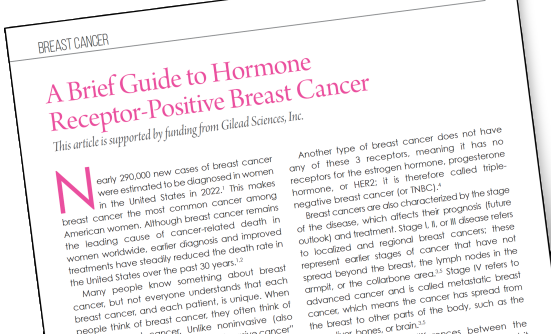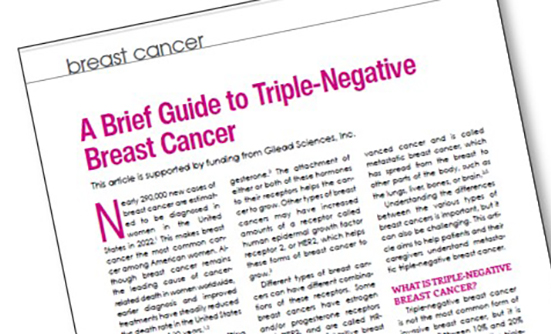There will be a great deal of information coming at you once you have received a breast cancer diagnosis. It may be difficult to keep it all straight! There will be confusing medical terms, rapid scheduling of appointments and tests, and treatment decisions to be made (which I hope you choose to participate in by knowing your options).
Although every member of your multidisciplinary team is important to you (eg, your breast surgeon for performing your lumpectomy or mastectomy surgery to rid your body of the source of this disease, your medical oncologist for determining the best options for systemic treatment, and the pathologist for determining with great precision the type of breast cancer you have and its prognostic factors and biomarkers), your navigator is probably the one you will communicate with most regularly. Your navigator will be with you through each phase of treatment, coordinating your care and navigating you along this journey.
There are some questions you need to ask your navigator, ideally at the time of your first face-to-face encounter. They are:
1. Can you describe to me in layman’s terms what your role, responsibilities, and functions are as my navigator?
This will help you to understand how to work with your navigator.
2. What does coordination of care mean and how is it done?
To coordinate your care, the role of your navigator, as well as your role, will be described to make sure you will stay on track with your tests, referrals, consultations, treatments, and follow-up care.
3. How often will I be in touch with you?
You can discuss the frequency of your contact as well as the best way to connect (e-mail, text, phone call). Your navigator will let you know when you should reach out, and when you can expect to hear back. It’s good to know the best days and hours of the week your navigator is available. It’s also important to know when you should not expect to hear from your navigator. For example, if you learn your navigator is always with new patients on Mondays and Thursdays from 8:00 am to 6:00 pm, then you should not expect to be in contact during those days and times.
4. How long have you been a breast cancer navigator?
It will be nice to know your navigator’s background, including how long they have practiced and how many patients they navigate.
5. Will you be my “go to” person on my cancer care team?
It’s important to understand who your main point of contact is, especially if you are confused about your treatment (ie, conflicting appointment schedules or not understanding the treatment plan).
Last but certainly not least, you need to make a statement. This is not a question. TELL your navigator that you always want them to be honest with you so that you can have a trusting relationship. Your navigator will be very involved in your care throughout this cancer journey and is your patient advocate and represents you when the cancer care team meets to discuss your case. It is important you have confidence in your navigator and know you can trust them to represent you well.













